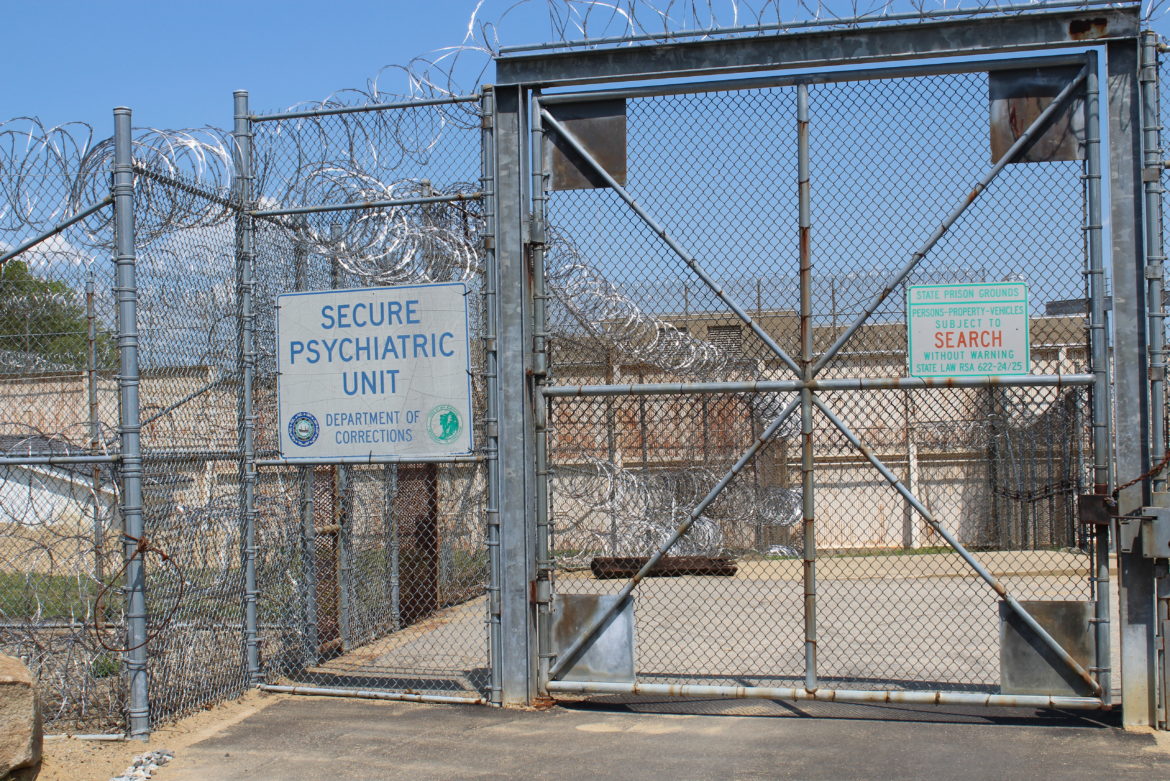By Wanda Duryea and Beatrice Coulter, Advocates for Ethical Mental Health Treatment
The Department of Health and Human Services held an information session last week via ZOOM. The purpose was to update the public on the progress of the proposed forensic hospital. The hospital is slated to open sometime in late 2024.
The usual players from the state were present on the call. New Hampshire Hospital CEO Ellen Lapointe was clearly the designated speaker. Nothing really new was shared. The same citizen concerns remained. However, the questions in the chat did reveal some citizen’s concerns over the continued utilization of the prison for civilly committed individuals.
The questions were specific. There were questions about if an individual who has not committed a crime that has been civilly committed would still be sent to the prison. There was a question about the placement of women in the men’s prison at the Secure Psychiatric Unit.
There was a question about repealing the laws that currently permit the practice. Ms. Lapointe’s response was that “detail-oriented conversations” will be occurring to determine who is placed in the forensic hospital.
We believe those “detail oriented conversations” have already occurred. They actually occurred a very, very long time ago. The end result of one of those conversations is now referred to as “due process.” One should not be placed in a prison in the absence of being convicted and sentenced by a court. This also applies to New Hampshire. Many years later more “detail-oriented conversations” took place. The end result of those conversations is now known as the Rehabilitation Act of 1973 Section 504 and The Americans with Disabilities Act Title II. Yet another conversation resulted in the Olmstead decision. Once again, there was no notable exemption for New Hampshire from the findings of these conversations.
Another question posed was about possibly accrediting the Secure Psychiatric Unit. Ms. Lapointe indicated she was not able to answer that question.
We will. The Secure Psychiatric unit is a prison. The gold standard accreditation body, the Joint Commission does not accredit unlicensed prison facilities. The Center for Medicare Services does not recognize SPU as a treatment facility making it ineligible for reimbursement.
To the best of our knowledge, SPU is not currently accredited by any corrections accreditation body. It would seem that the CEO of NHH would be aware of this. Particularly since the facility she oversees sends civilly committed individuals to the prison. The practice remains active. Yes, a hospital sends individuals to an unlicensed prison facility for treatment. These transfers are predicated on the subjective findings of “dangerousness”.
What is the state going to do when someone is “too dangerous” for the forensic hospital? We suspect they have a plan. To the prison you go. There is currently no incentive to repeal these statutes as the capacity of the facility is inadequate. The state is going to want options.
The repeal of these statutes would signal a new era. It would be a clear commitment to promoting the dignity of this very misunderstood and maligned population. It would require resources, adequate capacity and clinical competency. We are not there yet.
DHHS originally called for 100 beds. Here we are with 24.
When the state had the opportunity do the right thing, it was squandered by politics and hubris. There does not appear to be much policy vision occurring in the planning of this facility. With the addition of Wellpath we are deeply concerned. The needed cultural reforms may be hobbled in the presence of a for-profit health care provider with a deeply troubling record. The shift from a corrections paradigm to a therapeutic milieu may be elusive. Solitary confinement and the use of tasers in this facility should also be prohibited.
We have spoken to many individuals that have been subjected to both while in the Secure Psychiatric Unit.
New Hampshire now needs a “trigger law”. That law should be as follows: Once this facility is operational, the transfer of any civilly committed individual to the Secure Psychiatric Unit regardless of criminal justice involvement would be prohibited. It would end a dark chapter in the state’s treatment of seriously mentally ill individuals. Sadly, the inmate population will be unable to escape the failings of SPU.
Failure to end this practice may mean we could very well be witnessing the creation of another Secure Psychiatric Unit-the next version. A new building alone will not solve the plethora of collateral issues that need to be addressed. Let us learn from the policy failures in the mid 1980’s that has contributed to much suffering by many individuals.
It is time to reject the long-term acceptance that such profound clinical and constitutional failures are acceptable and remedied by lawsuits and settlements.
They are not. The trauma remains…
Wanda Duryea
Beatrice Coulter
Advocates for Ethical Mental Health Treatment





